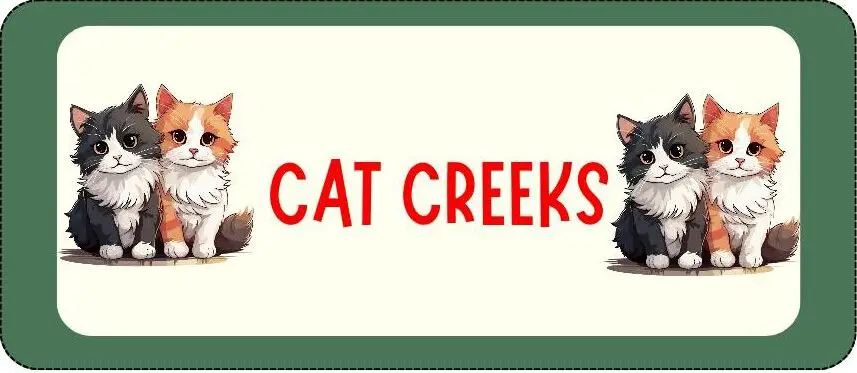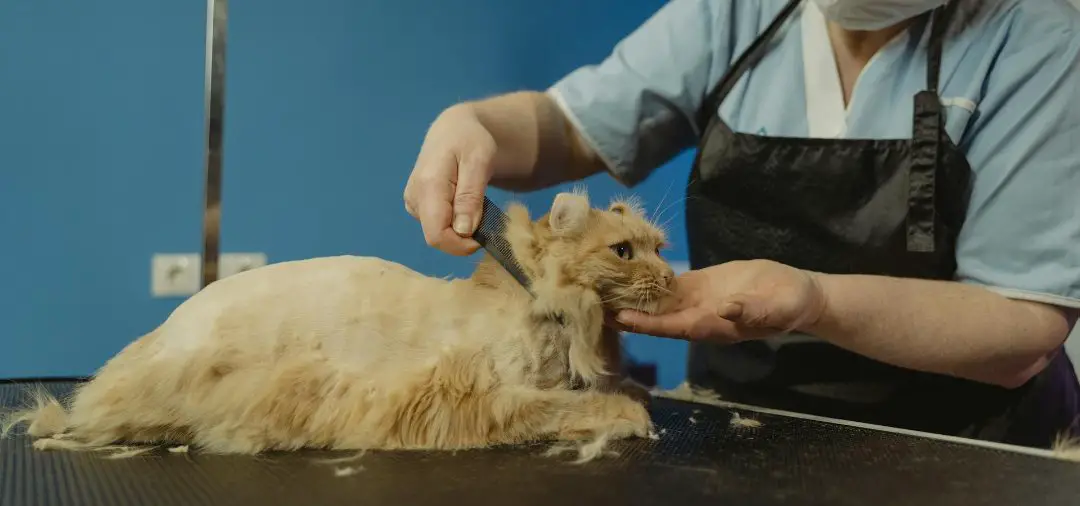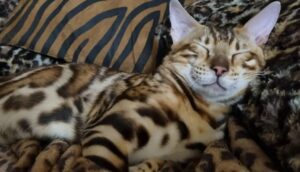I’m not a big fan of shaving cats, even though I own a cat I have not and will not shave my cat, except when instructed by a veterinarian.
That being said, I have some friends who have shaved their cats at one point or the other, I have discussed with them finding out some shaving cats pros and cons.
Therefore, this post will be the result of my discussion with some of my friends who have actually shaved their cats and a bit of online research about shaving cats.
So, keep reading to find out more about shaving cats pros and cons…
Shaving Cats Pros And Cons
Based on what I gathered from people who actually shaved their cats and what I know about not shaving your cat, I can tell you that there are a lot of pros and cons to shaving cats.
To make this post simple, I’ll discuss the pros and cons differently, so let’s start with the pros
Pros of shaving your cat
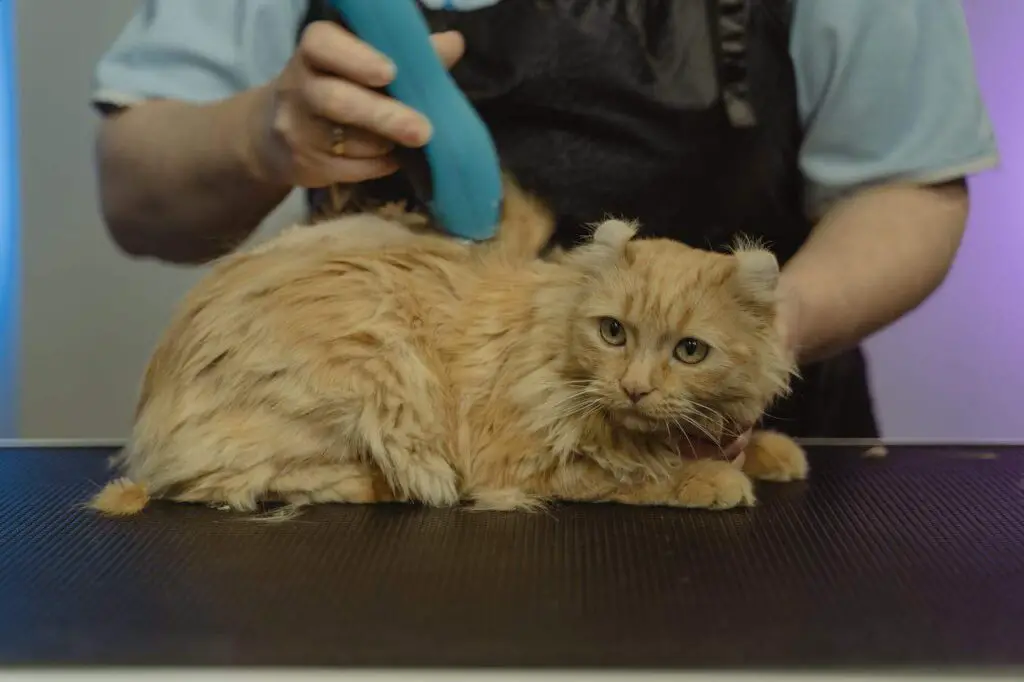
Based on what I gathered from people who actually shaved their cats and online, here are some common pros of shaving your cat:
1. Shaving cats can aid in managing skin infections by exposing the skin
As you are undoubtedly aware, allergies, parasites, and underlying medical issues are just a few of the causes of skin diseases in cats.
I learned that shaving your cat can help manage these illnesses by making the problematic regions more visible, based on what I learned from my friends who also shaved their cats.
When the fur is gone, it’s simple to examine any skin conditions, treat them, and apply medication or topical therapies directly to the skin.
In addition to promoting better air circulation, shaving these injured areas hastens their healing.
2. Shaving your cat can significantly reduce shedding
Since most cats shed a lot, their fur might wind up all over your house, this can be reduced by shaving your cat.
Excessive shedding might exacerbate symptoms if you or someone else in your home is allergic to cat dander.
Thus, some of my friends who have shaved their cats have informed me that this is a good method of reducing shedding.
Less fur means less hair to shed and less dander to accumulate in your surroundings.
Shaving your cat can also significantly improve the cleanliness and comfort of your house while lowering allergies.
3. Shaving your cat can help them stay cool and comfortable in hot weather
Naturally, cats have fur on their bodies, which acts as insulation and shields them from the cold.
But because of how insulating and thick this hair may be, it might be difficult for them to control their body temperature in hot weather.
According to a few of my friends who have shaved their cats, shaving your cat in the summertime helps keep them cool and comfy.
They can withstand the heat better because their body can release heat more readily without the additional fur.
By shaving your cat, you can lower their chance of heat-related illnesses and keep them from overheating.
4. Shaving your cat can potentially reduce the amount of allergens in your home
Cat allergies are often triggered by a protein called Fel d 1, which is found in cat dander.
Dander consists of microscopic particles of skin that cats shed, however, by shaving your cat, you’re reducing the amount of fur available for dander to cling to.
This can help reduce the overall allergen load in your home and alleviate allergic reactions for people who are sensitive to cat dander.
However, it’s important to note that even without fur, cats still produce dander, so it may not completely eliminate allergies for some individuals.
5. Shaving your cat decreases the risk of external parasite infestation
Fleas and ticks are examples of external parasites that thrive in cats with thick coats because they make excellent hiding places.
In addition to causing a variety of issues, such as skin irritation, allergies, and even infections, these bothersome creatures can swiftly infest your cat.
It’s much harder for parasites to attach themselves to your cat when you shave them because you’re effectively eliminating their comfortable hiding place.
Based on what I gathered from my friends who shaved their cats, I can tell you that shaving your cat helps keep your cat comfortable and healthy, while also drastically lowering the chance of any parasite infestation.
6. Shaving your cat can significantly reduce the risk of hairball issues
Cats are careful groomers, and they will always eat some of their own fur while doing so.
Hairballs may develop in their digestive tract as a result of the fur building up over time.
Hairballs can cause discomfort, coughing, and digestive problems in addition to being unpleasant for both you and your cat.
You can lessen the quantity of fur your cat can swallow by shaving them, which can lessen the frequency and intensity of hairballs.
It’s similar to supporting improved general health while providing a vacation for your cat’s digestive system.
7. Shaving your cat makes grooming and hygiene maintenance easier
Grooming a long-haired cat can be quite a challenge. Mats and tangles can form easily, especially in areas that are harder to reach, such as under the belly or around the hindquarters.
These mats can be painful for your cat and may require professional grooming or even sedation to remove.
By shaving your cat, you’re eliminating the need to deal with these troublesome tangles.
Grooming becomes a breeze as you can easily brush your cat’s shorter coat and keep them looking neat and tidy.
Additionally, without all that excess fur, it’s easier to keep your cat clean and free from any dirt or debris that might get trapped in their coat.
It’s like streamlining the grooming process for both you and your cat, making it a more pleasant experience for everyone involved.
8. Shaving your cat can enhance comfort for elderly cats
Cats may develop arthritis or mobility problems as they get older, which makes it harder for them to properly groom themselves.
Inflexible cats may find it difficult to get into tight spaces, which can result in matting, bad odors, and even skin diseases.
By cutting down on the amount of fur your senior cat has to groom, shaving can help ease these problems.
It facilitates their mobility and enables them to keep themselves clean and comfortable.
Additionally, they might feel lighter and more at ease going about their everyday business without the burden of a bulky coat.
Cons of shaving your cat
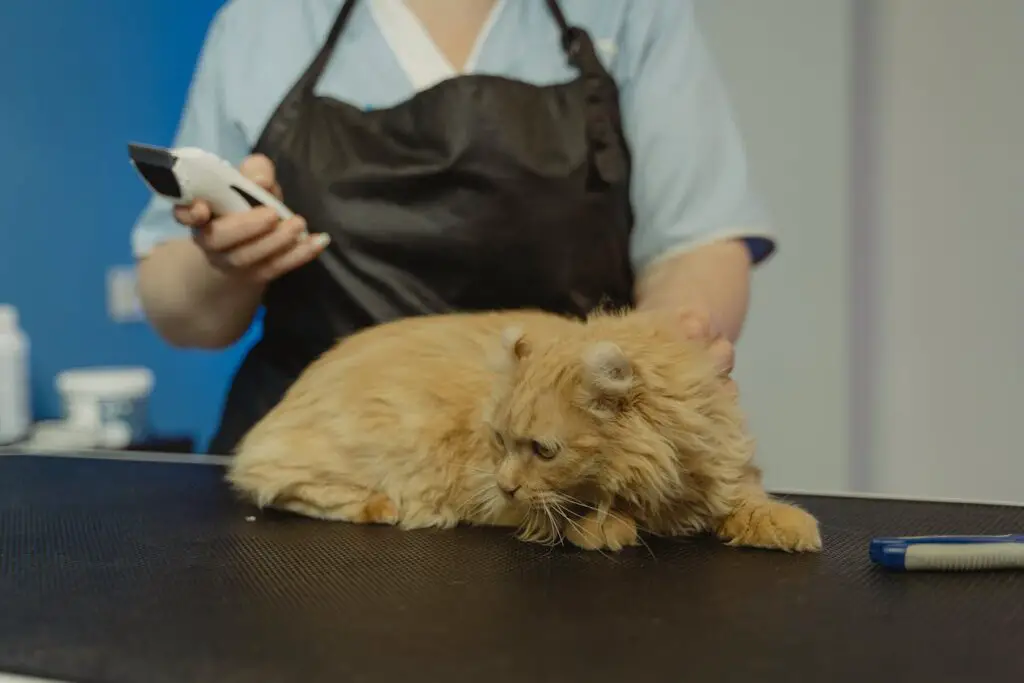
Here are some common cons of shaving your cat:
1. Shaving your cat can lead to Psychological stress for your cat
Cats are creatures of habit, and they find comfort in their routines, therefore, shaving their fur throws this habit off and may cause tension in the mind.
Fur provides cats with a sense of warmth, safety, and protection, and this is similar to taking off their natural armor.
Their feeling of vulnerability and exposure in the absence of their fur can cause anxiety and anguish.
In addition, cats groom themselves frequently to preserve their fur and aroma.
This self-grooming process helps cats develop their smell identity, distribute natural oils, and control body temperature in addition to keeping them clean.
Shaving may obstruct your cat’s normal grooming routine, confusing it and making it more distressed.
2. Shaving your cat can disrupted social dynamics for your cats
Particularly in multi-cat households, cats exhibit complicated social dynamics.
They create hierarchies, use scent marking as a form of communication, and perform grooming rituals to strengthen social ties.
One cat’s appearance and aroma can change dramatically when their fur is shaved, which could confuse other cats in the home.
Let’s say that one cat comes home and gets his fur shaved off. They might no longer be recognizable to the other cats by appearance or scent, which could cause conflict and even violent encounters.
For all of the cats involved, this upheaval in social dynamics may cause more stress or possibly cause their relationships to fall apart.
3. Shaving your cat increases the risk of sunburn
Although cats are known to like tanning in the sun, their fur acts as a natural shield from UV radiation.
By removing this layer of defense, shaving exposes a cat’s sensitive skin to the sun.
Cats are susceptible to sunburn, much like people, which may be excruciating and uncomfortable for them.
Some breeds are more prone to sunburn than others, like as those with lighter-colored fur or thin coats.
Shaving also makes parts of the body more vulnerable to UV damage, such as the ears and belly, which are normally covered in fur.
Redness, swelling, and in extreme circumstances, skin cancer, can result from sunburn.
It’s critical to take these hazards into account and take preventative measures to shield your cat from prolonged sun exposure.
4. Shaving your cat increases risk of injury
Though they are graceful and nimble animals, cats are not immune to mishaps.
A cat that has had its fur shaved is more likely to have wounds, scratches, and infections because of the increased skin exposure.
Everyday activities like going on outdoor adventures, climbing trees, or even just playing with other animals might be more dangerous without the natural protection that comes with fur.
Rough surfaces, thorns, and sharp things can scratch freshly shaven skin more easily.
A minor scrape can also become more susceptible to infection in the absence of fur’s cushioning function.
To reduce the chance of harm, it’s critical to pay special attention to your cat’s shaved regions and make sure they’re maintained tidy and safe.
5. Shaving your cat increases the risk of skin irritations and infections
Shaving your cat exposes their delicate skin to potential irritations and infections since it removes their natural fur barrier.
Without the insulation that comes from their fur, cats’ sensitive skin is prone to irritation from the outdoors.
Their skin is more vulnerable to cuts, scratches, sunburns, and other injuries when their fur isn’t there to function as a barrier.
Furthermore, shaving may throw off the skin’s natural oil balance. The oil glands in cats’ skin contribute to the hydration and health of their skin.
Shaving their fur removes these oils, which can cause dryness and other skin issues.
Dry skin can become itchy and uncomfortable for your cat, and it may even lead to more serious conditions like dermatitis or bacterial infections.
6. Shaving your cat can lead to interference with temperature regulation
Cats are remarkably adept at controlling body temperature using their fur.
They stay cool in warmer climes and warm in colder ones thanks to the natural insulation that comes from their fur.
Shaving takes away their fur, so you’re effectively depriving them of this natural defensive system.
Cats could have trouble keeping their body temperature steady without their fur.
They might become more prone to hypothermia in colder climates or even overheating in hot weather.
Their fur acts as insulation, allowing their bodies to adjust to varying environmental circumstances.
It can be challenging for them to be comfortable and disturb this natural process when they shave.
7. Shaving your cat lead to behavioral changes
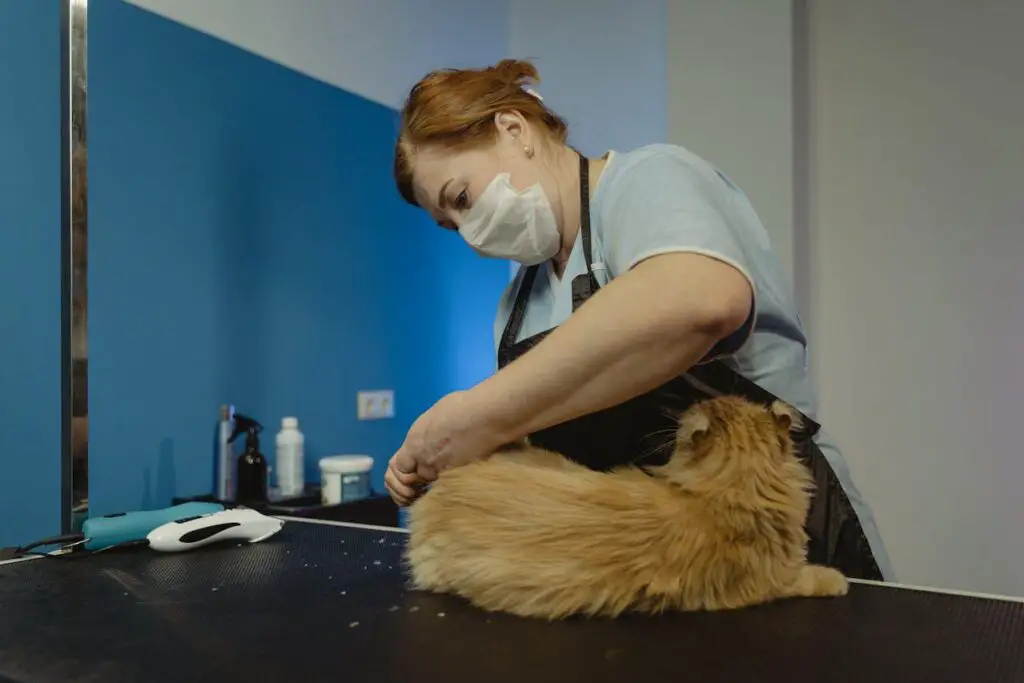
Cats depend on their fur for purposes beyond than simple physical defense. Additionally, they communicate and express themselves through their fur.
Shaving their fur might make them feel exposed and vulnerable, which can make them tense or nervous.
Behavioral shifts can take many different forms, as your cat can begin to hide more frequently, grow more reclusive, or even show aggressive behaviors.
Shaving their fur may cause them to feel uneasy and lose their familiarity, which may cause behavioral changes.
When choosing whether or not to shave your cat, it’s crucial to take their emotional health into account.
8. Shaving your cat increases the risk of insect bites
A cat’s fur, contrary to popular belief, offers some defense against parasites like fleas and ticks.
These pests find it more difficult to penetrate the cat’s skin because of the barrier that the fur creates.
This layer of defense is removed when you shave your cat, leaving them more susceptible to bug bites.
Itching, discomfort, and even health problems can result from insect bites. Particularly, ticks and fleas can infect your cat with illnesses.
To protect your cat from these possible dangers, it’s crucial to take alternate precautions like routine grooming and the use of suitable flea and tick control techniques.
Related: Cat behavior after shaving.
Conclusion
In summary, shaving cats can have both pros and cons. On one hand, it can help manage shedding and prevent matting. On the other hand, it can cause stress and potential skin issues.
It’s important to weigh these factors and consult with a veterinarian before making the decision to shave your furry friend.
